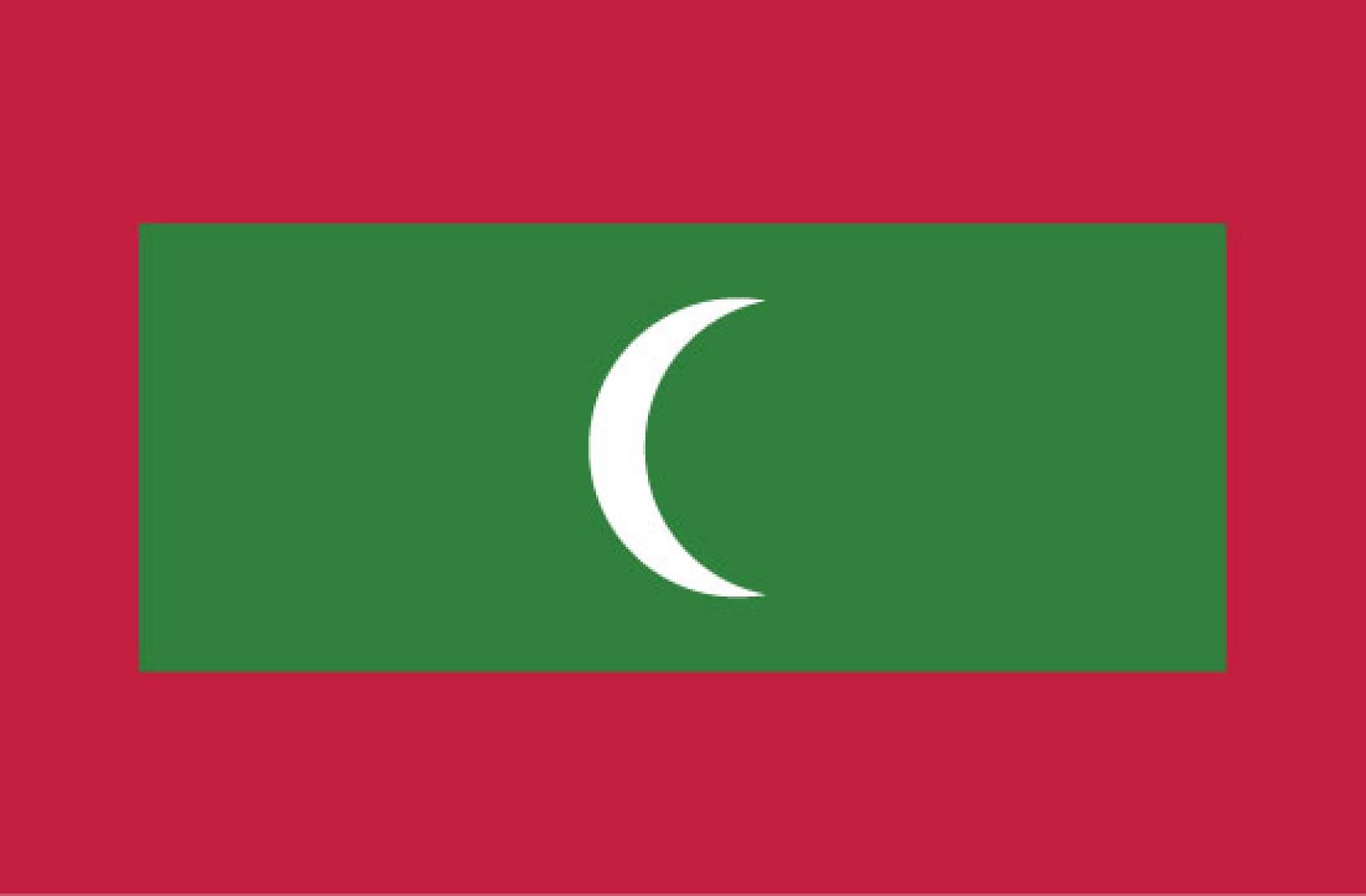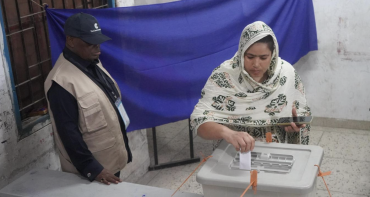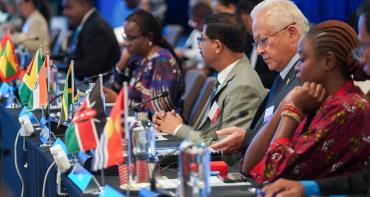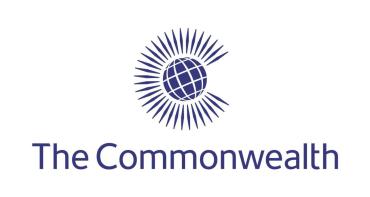Commonwealth Observer Group

The 7 September Presidential Election marked an important step for Maldives in its journey to further consolidate democracy.
The 17-member Commonwealth Observer Group has been present in Maldives since 31 August. Since then we have met with the Elections Commission, representatives of the presidential candidates, civil society, independent commissions, the Maldives Police Service, Commonwealth High Commissioners and representatives of the United Nations, as well as other international and national observers.
On election day, Commonwealth observers visited 14 of the country's atolls, and observed the opening, voting, closing and counting of ballots. Our teams met with election officials and other observers at the local level to build up a broader picture of the process.
As the electoral process will continue into a run-off poll, this Interim Statement outlines the Group's preliminary findings assessing the conduct of the process thus far. Commonwealth observers will return for the second round, and we will make our final assessment following the conclusion of the process.
Key Findings
- This election was the second presidential poll to be conducted under a democratic legal framework. The election was inclusive and competitive, with freedoms of association, assembly and movement provided for.
- The election campaign was overall vibrant and peaceful. Candidates' representatives reported that candidates had been able to campaign freely during the official 30 day campaign period.
- The national broadcaster, Television Maldives, treated all candidates fairly. Candidate representatives expressed satisfaction with its coverage of the campaign. Concerns were expressed that political affiliations appear to influence the coverage of most privately owned broadcasters. We encourage the empowered regulatory bodies to monitor and enforce adherence to the prescribed electoral standards in this area.
- The legal framework governing this election provides adequately for the conduct of democratic elections. The absence of effective enforcement mechanisms for violations of the code of conduct for candidates and campaigners, and a lack of clarity and coordination between relevant institutions appears to have resulted in a lack of timely response to alleged violations.
- The Group found that gaps in the legislation on political financing enabled presidential candidates to spend on their campaigns with a lack of public accountability. In addition, the possible misuse of state resources and the distribution of 'gifts' in a manner that could benefit candidates should be addressed through legislation and enforcement.
- On election day Commonwealth observers reported positively on the voting and counting processes in the 14 atolls visited. The Group observed a large early turnout, particularly in Malé, and was struck by the calm and patient manner in which voters conducted themselves.
- The Group wishes to commend the professionalism of the polling staff we met. Procedures were followed in a consistent manner, and officials were transparent in their interactions with voters and observers.
- All the polling stations observed opened on time, the secrecy of the vote was provided for, and voters were free to express their will. However, improvements could be made to the layout of smaller polling stations to enhance secrecy of the vote. The count started within the required timeframe.
- The Group was pleased to see party and candidate observers in all the polling stations observed. Although not all candidates or parties were represented at every polling station, those who were present carried out their role actively and responsibly.
- The number of women voters was high, as was the number of women polling officials. The Group noted no practical impediments to women voters exercising their franchise.
- The voter register appeared to be accurate and robust. Fears expressed by some political parties regarding possible large numbers of deceased voters and voters registered in the wrong geographic area seem to be unfounded, based on the low incidence of election day complaints. In the few instances of omission or incorrect registration that were observed, it was clear that polling officials followed the prescribed procedures to resolve complaints. As the complaints process is ongoing, we will comment further on the voter register at the conclusion of the electoral process.
- On election day the police were observed acting in accordance with their agreed role and respecting the authority of polling officials. A Memorandum of Understanding was signed between the Maldives Police Service (MPS) and the Elections Commission on 3 September, stating the role of the MPS during the election period. The Group would have been pleased to see the early publication of this memorandum, in the interest of increased transparency and public awareness.
- The count at polling stations was conducted transparently, if slowly. Polling officials worked methodically and party observers, national observers and the media were present to witness the outcome.
- It was clear that the Elections Commission was logistically well-prepared for this election. Election material was distributed in time to the atolls, and overall, the process was well-administered.
- Finally, the Commonwealth Observer Group would like to commend the people of Maldives for the spirit in which they participated in this election. The high voter turnout (provisionally estimated by the Elections Commission as 88 per cent) reflects very positively on the Maldivian people’s strong commitment to the democratic process.
- As the country prepares for the second round vote, on 28 September, we encourage the candidates, parties and voters to continue in this spirit of peaceful democratic engagement.
Campaign and media
Candidates and parties held rallies and meetings across the atolls and were able to assemble freely and express their views. The campaign was largely peaceful and political parties and their supporters acted responsibly overall. A few incidents of minor disruption to campaigning were reported, but these did not appear to be widespread. Some parties used negative rhetoric in reference to other candidates, which was not in the spirit of the code of conduct incorporated in the Presidential Election Regulation 2013. Candidates and parties generally respected legislation stipulating the cessation of campaigning at 6pm on the eve of the election.
A small number of campaign-related complaints, including allegations of the financial and material assistance to gain support for a candidate, and alleged inappropriate use of state resources, were noted by some stakeholders. Candidates are permitted by law to spend up to 1,500 Maldivian Rufiyaa per voter (currently equivalent to USD 23.5 million per candidate) during the 30-day campaign period. However, there is no limit on financial contributions to political parties and, under the Political Parties Act 2013, parties are permitted to receive anonymous donations and funding from foreign sources. While presidential candidates must declare their assets and expenditure, political parties are not obliged to make this information public.
A weak legal framework for electoral offences, combined with a lack of clarity regarding different institutions’ roles in addressing some electoral offences, limits the ability for some issues of concern to be adequately addressed in a timely manner.
The national broadcaster Television Maldives (TVM) was widely considered to have acted fairly towards all political parties and candidates. This is in line with legislation under the law governing the Maldives Broadcasting Commission and Article 30 of the Elections (General) Act. TVM broadcast four live programmes, each focused on a single candidate. They also aired two debates, one with running mates, and the other, a presidential debate with all four candidates. TVM also provided regular voter education slots.
Coverage of the campaign by some privately-owned broadcast and print media generally reflected political bias. Many private television stations and newspapers (print and online) are owned by or associated with political actors, with content perceived as slanted towards the associated political party.
In August 2013, the Maldives Broadcasting Commission released a statement urging broadcasters to follow the Elections (General) Act, the Code of Practice and the Guidelines on Broadcasting Political Content During Elections.
There remains lack of clarity as to the responsibilities of the Elections Commission (operating under Article 30 of the Elections (General) Act, and the Broadcasting Commission (operating under the Broadcasting Act). Article 30 specifies that all candidates be given equal airtime to campaign on broadcast channels. A number of stakeholders suggested reluctance by regulators to exercise their powers to enforce the legislation, ostensibly due to a mixture of capacity constraints and blurred boundaries between institutional responsibilities.
Social media was a popular campaign tool, appealing particularly to young voters. Twitter was used prolifically by political parties, their supporters, officials and the public to convey and relay information and misinformation.
The Electoral Framework and Election Administration
The 7 September elections were the second multi-party Presidential Elections to be held in Maldives. The electoral framework provides the basic conditions for credible and competitive elections, with the requisite freedoms. Within this context, the competent management and administration of election day represents further progress for the country in strengthening its democratic practices.
The Elections Commission of Maldives took steps to ensure accuracy of information and transparency in the administration of the voter registration process. Integrity of the voter register is critical to ensuring public confidence in the polls.
The Presidential Election Regulation 2013 contains a code of conduct for candidates and persons campaigning in support of a candidate. However, the Regulation does not stipulate sanctions for breach of the code. Consideration should be given to strengthening legal provisions in this regard, including on the respective monitoring and enforcement roles of relevant national institutions.
The complaints and appeals mechanisms remain ambiguous and a potential weakness. One of the key recommendations outlined in the Commonwealth’s 2008 Observer Group report was for greater clarity and coherence around these procedures. As the complaints process is still active, we are not in a position to comment on its overall efficacy, and will do so in our Final Report.
Voting and Counting Procedures
Commonwealth observers reported a peaceful and well-managed process on election day. Polling officials were consistent and meticulous in the application of procedures. Most officials seemed well trained and experienced. It was positively noted that a significant majority of polling officials were women. The Group observed that the Maldives Police Service maintained an unobtrusive presence outside polling stations, and respected the spirit of the stipulated 100 feet boundary from the ballot box.
The turnout of voters was notably high, with long queues at many polling stations prior to the opening of the polls at 0730 hours. However, by midday the long queues had dissipated in the majority of places, and most voters had cast their ballot well before the close of polls at 1600 hours. It was observed that voters who were still queuing at the time the polls closed were able to cast their votes, as provided for by law.
Voters were free to exercise their right to vote. The secrecy of the ballot was provided for, although in a few cases, due to constraints of space in some polling stations, this was somewhat compromised. The Group noted improved clarity in the criteria for assisted voting compared to the 2008 elections. However, observers witnessed inconsistent application of these provisions, and recommend additional training for polling officials in this area.
The vote count at the polling station was highly transparent with media monitors, party observers, and national and international observers able to scrutinise the process closely. Polling officials were methodical in their approach, explaining decisions on any invalid ballots to those present. Although the provisional percentage of invalid ballots (1.1%) fell within the range of international best practice, the Group noted that in some instances where the intent of the voter was clear, the ballot was invalidated as the mark was not the requisite check mark. We recommend additional voter education focussed on the acceptable mark and/or a review of this provision.
The count process was conducted in a consistently transparent manner, with officials observed by the Group demonstrating willingness to repeat steps in the process in response to concerns expressed by party observers. At the conclusion of the count, the results were announced and then posted at the polling station, as required.
The Commonwealth Observer Group will be present for the second round of voting on 28 September. We will issue a comprehensive Final Report, including recommendations, at the conclusion of the electoral process.



